Let’s get one thing straight — your cravings aren’t random. They’re not just about “lacking willpower” or being addicted to snacks. More often than not, cravings are your body’s SOS signal for missing nutrients.
In other words, what you’re reaching for might be your body’s very confused way of saying:
“Hey… I’m low on something important.”
So instead of fighting your cravings with shame or zero-calorie garbage, let’s actually decode what they mean — and fix them at the root by eating nutrient-dense, bioavailable foods your body recognizes.

Craving Chocolate? You Might Be Low in Magnesium
This one’s incredibly common. People who crave chocolate all the time are often dealing with magnesium deficiency — and that’s a big deal, because magnesium helps regulate over 300 enzymatic reactions in your body, including ones that impact stress, mood, and sleep.
And no, eating Hershey’s bars all day isn’t helping. If your body is begging for chocolate, try this instead:
- Eat grass-fed beef and dark leafy greens
- Add in raw cacao, avocado, or pumpkin seeds
- Take a high-quality magnesium glycinate or eat sardines (not my favorite but if you love them, great)
Keywords: what chocolate cravings mean, magnesium deficiency and cravings, Paleo sources of magnesium
Bread, Pasta & Carb Cravings? Think B Vitamins & Energy
Craving toast, pasta, bagels, or chips? It might not just be comfort — it could be your body asking for quick energy because it’s running low on B vitamins, especially thiamine (B1), folate, or B12.
These nutrients support your nervous system, brain, and metabolism. Deficiencies can cause fatigue, brain fog, and mood swings — all things that drive you to seek fast, starchy fuel.
Instead of reaching for processed carbs, try:
- Beef liver (literally packed with B vitamins)
- Pasture-raised egg yolks
- Oysters and organ meats (seriously underrated)
Salt Cravings? Check Sodium, Potassium, and Adrenal Function
Salt cravings aren’t a weakness — they’re often tied to electrolyte imbalance, adrenal fatigue, or low-quality hydration. If you’re eating a clean, whole-food Paleo or animal-based diet, you’re likely not getting much sodium from processed food — so a real salt craving might mean your body’s actually under-mineralized.
Fix it with:
- Unrefined sea salt (sprinkle it on everything)
- Bone broth (natural electrolyte support)
- Foods rich in potassium like cooked spinach, coconut water, or white potatoes (if tolerated)
Sugar Cravings? Could Be Chromium, Zinc, or Blood Sugar Chaos
If you’re craving sweets every day at 3 PM, your body’s likely dealing with blood sugar instability, missing chromium, or not getting enough zinc. Processed sugar spikes insulin, but it doesn’t solve the root issue — it just sets you up for another crash.
Instead:
- Eat protein and fat with every meal to stabilize blood sugar
- Add zinc-rich foods like oysters or beef
- Try chromium-rich foods like eggs, broccoli, or liver
Your Cravings = Clues. Start Listening.
Your cravings aren’t the enemy — they’re feedback from your nervous system, your hormones, and your gut microbiome. And when you start eating real food loaded with the minerals, vitamins, and cofactors your body actually runs on, cravings fade naturally. You don’t need willpower — you need replenishment.
Start Here: Nutrient-Dense Foods That Stop Cravings Naturally
- Beef liver (A, B12, iron, copper, choline)
- Egg yolks (choline, biotin, fat-soluble vitamins)
- Oysters (zinc, selenium, iodine)
- Bone broth (glycine, electrolytes, collagen)
- Grass-fed red meat (heme iron, B vitamins, protein)
Focus on bioavailable nutrients from animal foods and stop trying to out-discipline a deficiency.
Sources:
“FoodData Central.” U.S. Department of Agriculture,
https://fdc.nal.usda.gov
Saladino, Paul. The Carnivore Code: Unlocking the Secrets to Optimal Health by Returning to Our Ancestral Diet. Houghton Mifflin, 2020.
https://carnivoremd.com/the-carnivore-code/
“Magnesium.” National Institutes of Health: Office of Dietary Supplements,
https://ods.od.nih.gov/factsheets/Magnesium-HealthProfessional/
“Micronutrient Deficiencies.” World Health Organization,
https://www.who.int/health-topics/micronutrients
Gropper, Sareen S., and Jack L. Smith. Advanced Nutrition and Human Metabolism. 7th ed., Cengage Learning, 2021.
https://www.cengage.com/c/advanced-nutrition-and-human-metabolism-7e-gropper

Leave a Reply